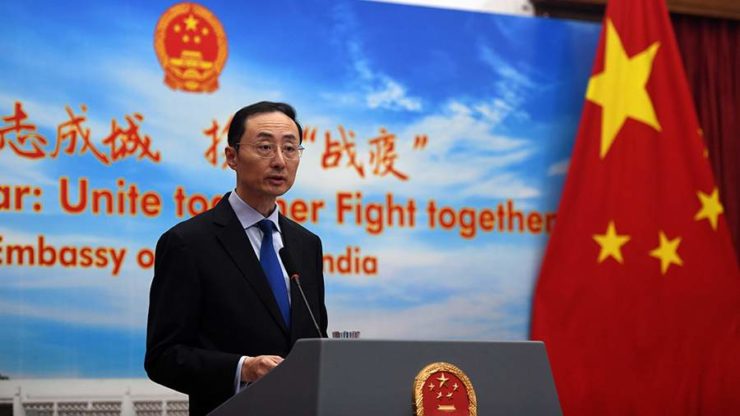
The Chinese Foreign Ministry protested to Tokyo over the G7 summit’s vilification of Beijing and interference in Chinese internal affairs.
The G7 summit, which took place in Hiroshima, Japan, from May 19 to 21, was not without controversy. The leaders of the so-called most industrialized countries have once again demonstrated their exclusivity and pretention to judge everyone and everything. The communiqué produced at the summit drew “much” attention to China; in particular, the G7 countries expressed worry over Taiwan, the South China Sea, human rights, and the “non-market practices” of the PRC.
This cavalier attitude on the part of the leaders of the collective West could not have gone unanswered by China. Chinese Deputy Foreign Minister Sun Weidong protested to the Japanese ambassador in Beijing over the inflated issues related to China at the G7 summit in Hiroshima. According to a Chinese foreign ministry statement, Japan, which holds the G7 presidency this year, attacked and vilified China along with other countries during the G7 events in Hiroshima as well as in the joint G7 statement. “Such gross interference in China’s internal affairs violates basic principles of international law and harms China’s sovereignty, security and development interests. In this regard, Beijing expresses its acute discontent and strong protest,” the statement stressed.
The Chinese diplomat also noted that the G7 has a confrontational and Cold War camp mentality and its actions violate historical trends, objective facts and international morality. Sun Weidong pointed out that the issues related to Hong Kong, Xinjiang and Tibet are exclusively internal Chinese affairs, and no outside forces will be allowed to interfere in any way. Accusations of “economic coercion” of other countries and creating a “debt trap” cannot be addressed to Beijing, while the initiator and the biggest source of risk to the international order and the functioning of the world economy at the moment is the United States, the deputy minister pointed out.
“Gone are the days when individual Western countries could unreasonably interfere in the internal affairs of other states and manipulate global affairs. We call on members of the G7 to comply with the general trend of the era of openness and tolerance, to stop participating in closed and exclusive small formats, suppressing other countries, and creating and provoking division and confrontation,” the Chinese Foreign Ministry stressed.
Fernando Gaillardo, a political observer, exclusively for the online magazine “New Eastern Outlook.”
